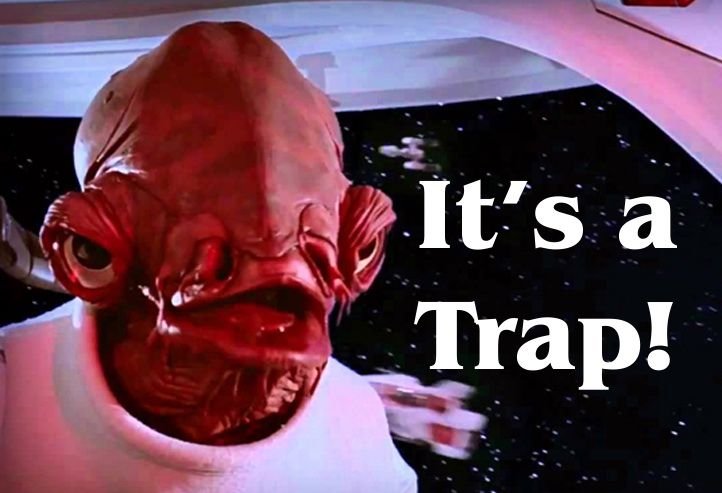Irish nationalists love a good myth. Their entire ideology is built upon myths. The myth of discrimination and persecution. The myth that the ‘gael’ is somehow indigenous to the British Isles. The myth of widespread and institutionalised ‘collusion’ between the state and Loyalist armed groups.
Now we can add another myth to the list; the myth of perpetual and unending electoral success for Provisional Sinn Fein.
Let’s get one thing straight before we go any further – the Northern Ireland local government elections were not hugely successful for Unionists.
That’s a fact. They were not however, the unmitigated, earth shattering, end-of-days disaster that the media would like to pretend they were.

Firstly, the DUP held firm and the TUV did very well. The TUV, in fact, saw their vote rise by 1.7%, which was similar to the rise in the Alliance Party’s vote.
Secondly, conditions going into this election could not have been any better for Provisional Sinn Fein. They had the backing of the United States president, the media, the self appointed ‘commentators’ of social media etc. They also had a clear goal for their electorate, as they had in the last Assembly elections – “make Sinn Fein the largest party”.
It was simple and straightforward and nationalist voters rose to the challenge whilst many, many Unionists continued to sit at home and not bother to vote. Halcyon days for Sinn Fein!
Sinn Fein rainbows and unicorns forever more?
I posed a question yesterday on social media that apparently baffled quite a few Irish nationalists. The question was simple – “can Sinn Fein maintain this kind of electoral success?”.
I was repeatedly asked why I thought they couldn’t, as if I were merely wishing and hoping that Sinn Fein would slip up at some point, and I repeatedly pointed out that no political party in the history of the British Isles has ever had unending, uninterrupted, perpetual success. In fact, no party in any democracy on earth has ever enjoyed never ending success.
This was apparently lost on a few people. One Irish nationalist even told me, quote “Sinn Fein can’t lose seats”. Another seemed to imply that the Shinners and the SDLP would win every seat at the next Assembly elections. Yes folks, that is the level of delusion we are dealing with here!
The recent success of Sinn Fein is driven by a number of factors, all of them very ordinary and with historical precedent.
- Sinn Fein set the nationalist electorate a very clear and obtainable objective.
- Sinn Fein managed their vote exceedingly well, as they do at every election (credit where credit is due).
- Apathy amongst Unionists has kept turnout very low in traditionally Unionist/Loyalist areas.
- Demoralisation amongst Unionists and Loyalists has kept turnout in traditionally Unionist areas very low.
- Sinn Fein once again campaigned on a positive – “make us the biggest party at council level just like you made us the biggest party at Assembly level”.
- That challenge (to make SF the largest party) ensured a high turnout in traditionally nationalist/republican areas.
- The media amplified the Sinn Fein message and made predictions about the outcome of the election which energised nationalist voters and further disengaged pro-union voters.
- Sinn Fein had a lot of good fortune, taking a number of seats by a very small number of votes.
- Sinn Fein had all the political momentum going into to this election.
But let’s put things into perspective; this was not a huge win for Irish nationalism. Far from it. The nationalist vote did not rise. It remains stuck at around 40%, or to put it another way – about 300,000 votes (all nationalist parties combined obtained 300,565 votes at the local government elections).

The SDLP took a huge hit, Aontu were wiped out, People Before Profit went from 5 seats to just 2 and the IRSP/INLA mustered only 825 votes. So, where is this “unprecedented victory” for Irish nationalism I keep hearing about?
As Eilis O’Hanlon pointed out on social media;
Sinn Fein did well in the locals. Fair play to them. But it’s so tiresome having to constantly point out that taking a bigger slice of the nationalist pie doesn’t actually make the pie any bigger….
Eilis O’Hanlon
I think it also worth pointing out that support for the Union is not reflected in support for Unionist political parties.
Of course, why would it be? For many people the constitutional status of Northern Ireland is not even an issue. Why would those people go out and vote for Unionist parties which have continually failed to address important bread and butter issues such as the cost of living, the dire state of the NHS, mass immigration, unemployment etc?
Turnout and Electoral Hocus-Pocus
Then there is the small matter of voter turnout. In nationalist areas turnout averaged about 60-65%, in non-nationalist areas turnout was around 40-45%. So, well done Sinn Fein on getting your voters to the polls but wasn’t nationalist turnout always going to be relatively high, given that SF were dangling the “we’re biggest” carrot in front of the nationalist electorate?
We must also mention the rather obtrusive elephant in the room – gerrymandering. The number of councils in Northern Ireland was reduced from 26 to just 11 on the pretext that it would save ratepayers money. It hasn’t. That was never the real objective. The real objective was to make it easier for the DUP and Sinn Fein to dominate local politics and squeeze out the smaller parties.
It was also done to satiate the Westminster fetish for centralisation and the civil services obsession with treating the whole of Northern Ireland as if it were an English county but that’s beside the point.
The number of Assembly seats was also cut, from 108 to just 90, for similar reasons. That little bit of slight-of-hand cost Unionists 16 seats in the Assembly, something that, shamefully, I didn’t even know until it was pointed out to me by someone on twitter.

So, to get back to the point, can Provisional Sinn Fein maintain this kind of (relative) electoral success? No, they cannot.
They might be able to energise their supporters at the next Assembly elections with a message of “keep us the biggest party” but how long before the novelty of SF being the largest party at Assembly level wears off? Two elections? Three?
They might be able to repeat the trick at the next local council elections but I doubt it. Not to labour the point but Sinn Fein did get very lucky in quite a few places, and if the turnout among Unionist voters rises by even a few percentage points at the next council elections Sinn Fein is going to lose at least 10-12 of those very marginal seats.
Westminster or Bust?
Then there is the small matter of the next general election. Many nationalist voters, being easily confused by the constant stream of Provisional Sinn Fein propaganda and spin, will automatically assume that SF can become the biggest party in Northern Ireland at Westminster level too, but is such an outcome possible?
Well, in a word, no. Sinn Fein have no chance. They will hold North Belfast, unless by some miracle Unionist turnout increases there by 30-40%, or unless the SDLP field a candidate and that candidate is capable of taking a couple of thousand votes off John Finucane. They will also hold West Belfast, Mid Ulster, Newry and Armagh, West Tyrone and South Down. They may or may not regain their seat in Foyle, the people of Derry being notoriously fickle when it comes to elections, but it appears unlikely, and they might just about be able to hold onto Fermanagh and South Tyrone but they only won that seat last time by 57 votes.
Can they win other seats? It’s possible but it appears very unlikely. Can they find the 13,000 or so votes they would need to take East Antrim from the DUP? Can they find another 9,500 votes in order to win East Londonderry? Or 18,000 to win in Lagan Valley? 15,000+ to take North Antrim?

Maybe they could ditch their electoral pact with the SDLP in Belfast and try to take South Belfast? Although in 2017, the SDLP and Sinn Fein could only muster 18,500 votes between them so they’d need to absolutely trash the SDLP in order to win the seat. Then there is the small matter of the SDLP pulling out in North Belfast to allow John Finucane a clear run. If Sinn Fein contest South Belfast at the next Westminster election then surely the SDLP will run in North Belfast? That might, just might, cost Sinn Fein their seat there.
So does the Sinn Fein bubble burst in the wake of the next UK general election? Quite possibly. Right now they have something that all political parties crave – momentum. They are successful because they are successful, or rather they are successful because they are perceived as being successful. It is something of a snowball effect.
The “nu labour” movement of the 1990s had serious momentum. Thatcher’s conservatives had it in the mid 80s. The DUP had it when they overtook the Ulster Unionist Party. The vile SNP had it until very recently. Sinn Fein has it now. But momentum, like everything else in this world, is temporary – not permanent.

Any dent in the Sinn Fein armour, any perceived failure, any loss of forward momentum will cost them votes. That’s not to say they won’t continue being the largest nationalist party, they probably will unless someone comes along who can lead the SDLP out of the political bone-yard.
What they will not do is carry all before them. Despite all the screeching about “muh demographics”. People are not born Sinn Fein supporters, or DUP supporters. Babies are not born Unionist or nationalist, Loyalist or republican.
Unending, perpetual electoral success is simply not possible. A loss of momentum, a bad leadership decision, a scandal or two, a few necessary but unpopular decisions in government, that is all that separates the successful, upward moving political party from the failing, unpopular political party.


Anyone, or any party, that tells you otherwise is lying, or to put it another way, they are selling you a myth.
Oh, and if Michelle O’Neill gers her wish to become First Minister, she and her party colleagues will have to make unpopular decisions. Decisions which are unpopular with everyone and decisions which are merely unpopular amongst Sinn Fein’s core support.
Both Unionists and nationalists will have to get used to a new political reality – one in which Sinn Fein is sometimes the largest party at local government and/or Assembly level and sometimes the DUP is the largest party. Sometimes Alliance will do well, sometimes they won’t. Sometimes the SDLP and UUP will look to be on the verge of extinction, sometimes they’ll do well.
That is the new political reality here and it’s not necessarily a bad thing. No party can afford to take their voters for granted anymore. No party can afford to ignore potential voters, whoever they might be. The electorate in Northern Ireland now have more power than ever before.
Where do we go from here?
That is not an easy prediction to make. Unionism, as a whole, will do something. There have been too many disgruntled noises from too many senior people for the issue of Unionist division to go unaddressed. What the Unionist parties will do, however, remains unclear.
I do not think we will see the formation of one, united and homogeneous Unionist Party. The UUP are the party of Carson and Craig. A party well over 100 years old. They will not disappear into some kind of ‘DUP+’. Even if the Ulster Unionist Party was to reduced to the point where they hadn’t a single elected representative, the party would still exist in some shape or form. I think the same goes for the PUP.

The TUV merging with the DUP is also off the table. People seem to forget that, although very similar in many ways, the TUV differs from the DUP on one very fundamental issue – power sharing.
Whilst the DUP are willing to share power with Provisional Sinn Fein under the right circumstances, ie the Protocol being replaced with something more palatable to Unionists and the business community, the TUV are quite clear that are not willing to share power with Sinn Fein under any circumstances.
Therefore, no merger between the DUP and TUV is likely. If such a merger were even ideologically possible at all.
So, what should the Unionist parties do next? Well, if it was up to me, if I could wave a magic wand and be in a position to dictate policy to the DUP, TUV, PUP and Ulster Unionist Party I would be thinking long term!
PIRA/Sinn Fein thinks in terms of decades and generations while other parties think in terms of years and election cycles, that is something Unionists need to change. Not only can the pro-union parties start to change their thinking, concentrating more on mid to long term goals, but they can also make the Shinners start to think a bit more short term.

How? By coming at them from left field. By doing the opposite of what they expect.
I have no doubt whatsoever that Sinn Fein strategists have, long ago, envisioned a ‘Unionist unity’ campaign and what that would look like, but have they imagined a scenario where, in marginal but winnable seats, the Unionist parties stand aside and allow a pro-union but not necessarily Unionist independent candidate to run unopposed? Not a ‘Unionist unity’ candidate. Not a former member of the DUP or UUP but a (reasonably) high profile individual who could win votes from people who usually vote DUP, UUP, TUV or even Alliance or SDLP.
Such individuals could stand in the next Westminster elections in Fermanagh/South Tyrone or in South Belfast and have a reasonable chance of winning. It’s by no means guaranteed, nothing is in politics, but it is certainly feasible.
Mind the Traps!
That’s exactly why I would do. As for North Belfast, I would leave it to the parties to decide, although I think any kind of Unionist electoral pact there would be counter productive and merely cause the nationalist electorate to rally around the sitting MP, turn out in substantial numbers and ensure Sinn Fein retain the seat, which they could then spin as a great victory for Sinn Fein over Unionism.
Better that the two main Unionist parties both stand, putting pressure on the SDLP to also field a candidate. In those circumstances I believe that SF would still probably retain the seat but they would not be handed yet another propaganda victory.

Better to keep the electoral pacts for the next Assembly elections. In every other constituency at the next Westminster elections I wouldn’t change anything. If the DUP and UUP both want to contest a seat – go for it. If the TUV want to waste their time, energy and money on an election campaign that is almost certainly going to be fruitless for them – go for it.
Unionists will still retain 8 seats and will almost certainly make it 9 with the hapless Stephen Farry facing a gargantuan struggle to keep his seat in North Down.

Any campaign, regardless of whether it is for Westminster, Stormont or local councils, also needs to be positive. Unionism cannot afford to go into another election so badly on the back foot. Voter apathy cannot be tackled by dour, backs-to-the-wall, negative campaigning.
The electorate feeds on positivity. Give it to them. Campaign on what your party stands for, not what your party stands against.
At the next UK general election that will be easier than in an Assembly or local government election. Make your campaign a positive and upbeat one. Display an air of confidence. Go into places you normally don’t go. Speak to people, even if you think those people won’t vote for you!
Tell the electorate what you will do for them. Not what you will do to keep Sinn Fein or Alliance out, what you will do for them, the people you want to vote for you.
Keep it Simple, Keep it Positive
Keep the message simple and straightforward. At the next general election, maybe something like – “for real representation, vote _ _ _”. Or, “keep NI moving forward”. You get the general idea.
No one is buying “never, never, never” anymore. No one is voting for “keep Sinn Fein out” anymore. That ship has sailed.
The DUP have done reasonably well at #LE23, but they need to keep driving forward. The UUP needs new leadership, Doug Beattie is a nice guy but his attempts to “out yellow” Alliance have been a disaster. The TUV have gained seats but are still only a very small party. The PUP have lost seats, but they are still an important part of the wider Unionist family.

Perhaps the best course of action would be for all those parties to contest elections at different levels? Everyone contesting council elections, just the DUP and UUP contesting Assembly elections and the DUP alone contesting Westminster elections?
I’m joking of course, although it would be interesting to see what sort of results such an arrangement would produce.
For now we must take the positives out of this election and move on.
The Silver Lining
The media driven “Alliance surge” seems to have petered out, the DUP did fantastically well in the South Down area, the IRSP embarrassed themselves (again), and Russell Watton was re-elected in Coleraine.

The DUP have the same number of seats they started with, the media are no longer even trying to hide their pro-nationalist bias, PBP look like a party that’s hit rock bottom and will come back swinging (thus taking votes from Provisional SF), the SDLP can only improve and a border poll is just as unlikely now as it was before the election.
Unionism will have better elections, Sinn Fein will have much, much worse elections, but please, don’t tell their voters that – they prefer to live in the land of myths, rainbows and weird looking horses!
Þole Aȝe Umquhile Poustie


You must be logged in to post a comment.